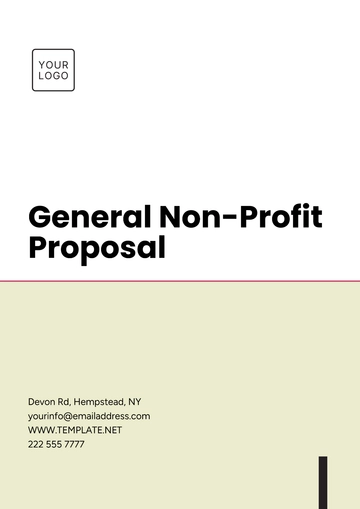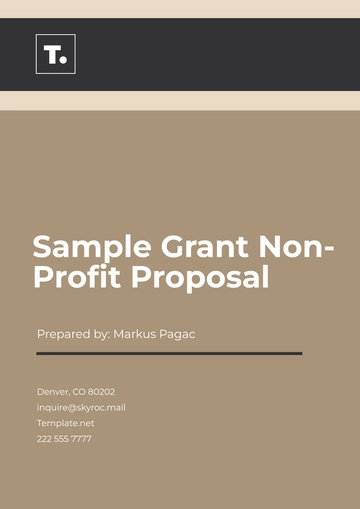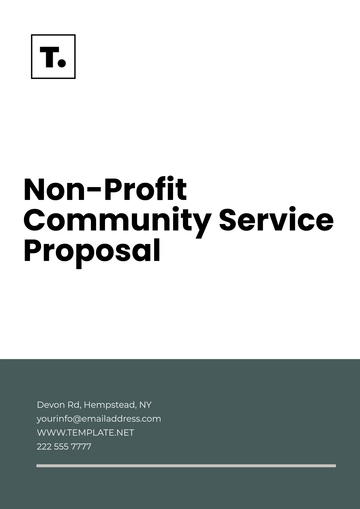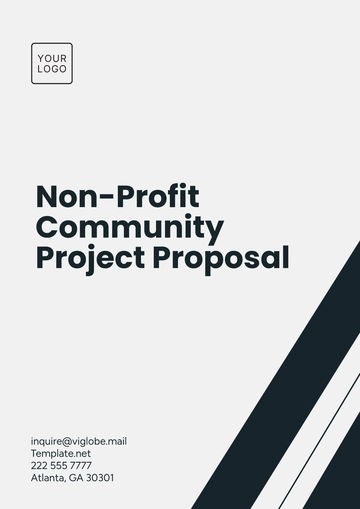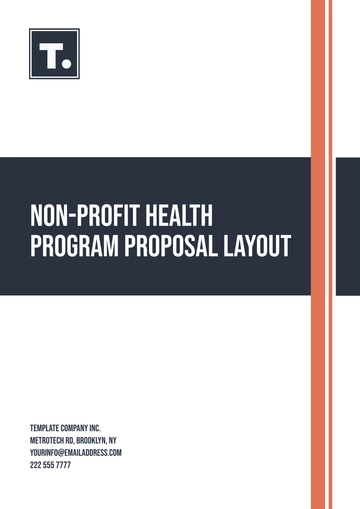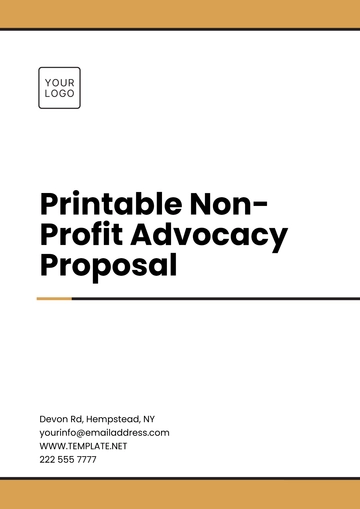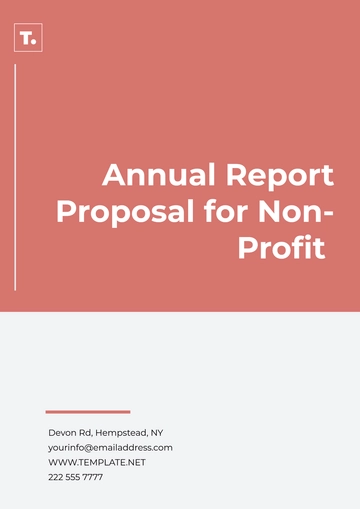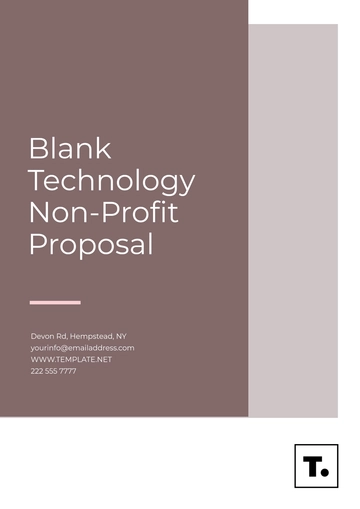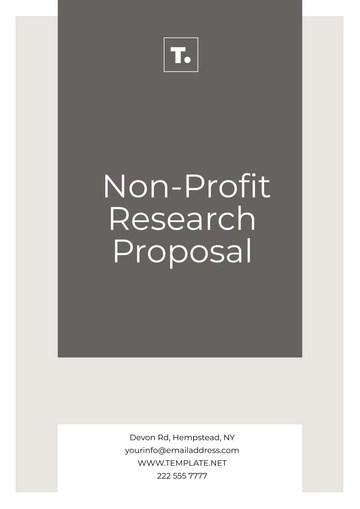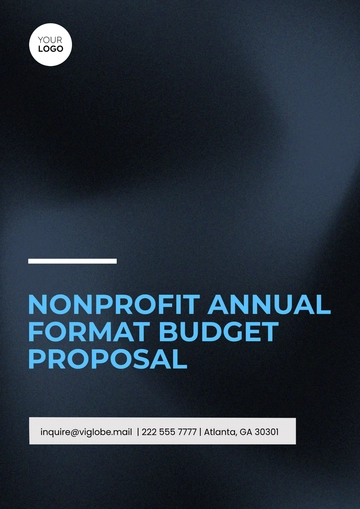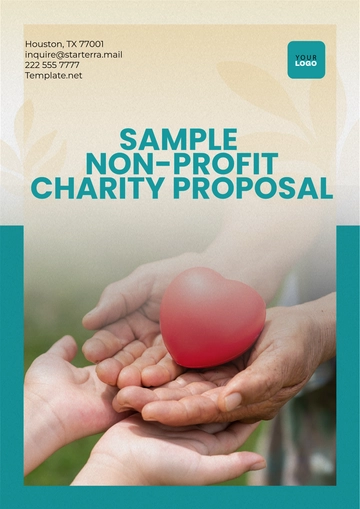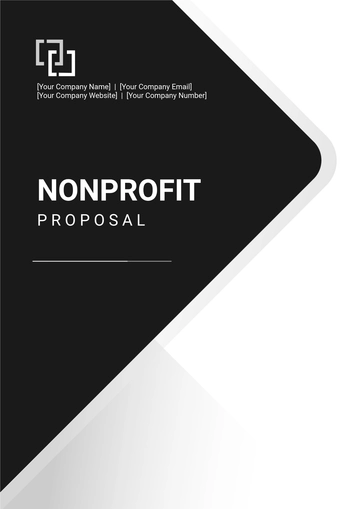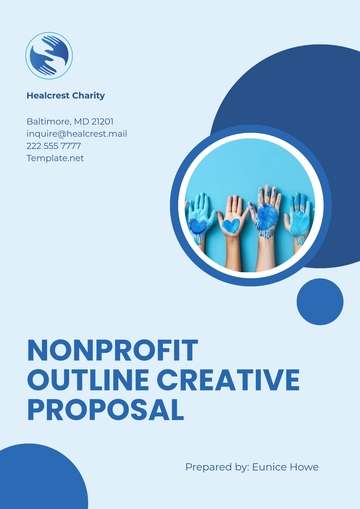Free Non- Profit Community Project Proposal
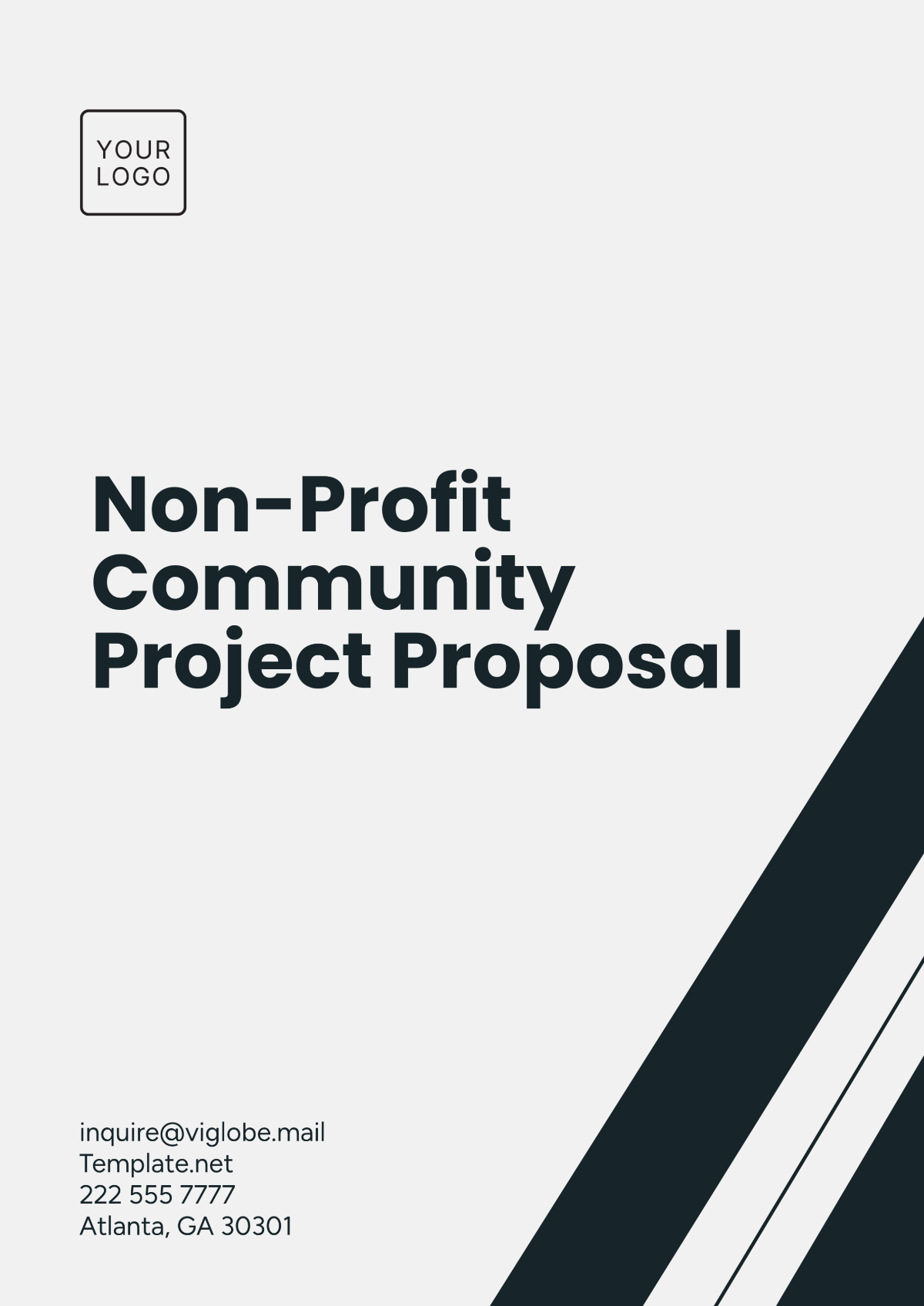
Introduction
This proposal seeks to establish a non-profit community garden in the downtown area. The purpose of the garden is to promote community engagement, provide educational opportunities regarding sustainable agriculture, and offer a source of fresh produce to nearby residents. By leveraging local resources and community involvement, this project aims to foster a sense of unity while addressing food insecurity within our community.
Project Objectives
The project outlines several core objectives:
Develop a community-managed garden space accessible to all community members.
Educate the community on sustainable gardening practices.
Provide fresh produce to local areas with limited access to groceries.
Encourage community participation and volunteerism.
Implementation Plan
Location Selection
The proposed community garden will utilize the vacant lot located at 123 Main Street, which is currently owned by the City Council and zoned for community use. This central location is ideal, providing easy access for community members of all ages.
Design and Infrastructure
The garden will be designed to include raised planting beds, pathways for accessibility, a rainwater collection system, and seating areas for community gatherings. Infrastructure for these elements will be provided by local volunteers and businesses offering in-kind contributions.
Partnerships and Collaborations
The project will partner with local schools, businesses, and nonprofit organizations to garner resources and support. Collaboration will include educational workshops led by agriculture experts and volunteer coordination for garden maintenance.
Budget Overview
Item | Estimated Cost |
|---|---|
Land Preparation | $2,500 |
Raised Beds and Soil | $3,000 |
Tools and Equipment | $1,500 |
Seeds and Plants | $1,000 |
Watering System | $2,000 |
Signage and Education Materials | $500 |
Total Estimated Costs | $10,500 |
Funding Strategy
Funding for the project will be acquired through a combination of community fundraising events, grant applications to local and national foundations, and donations from local businesses. Additionally, in-kind donations of materials and volunteer time will significantly reduce overall costs.
Expected Outcomes
Upon completion, the community garden is expected to provide numerous benefits, including increased community cohesion, improved access to fresh produce, and enhanced knowledge of sustainable practices among residents. The garden will serve as a model for similar initiatives in other communities.
Evaluation and Monitoring
Ongoing evaluation will be conducted to assess the project’s impact. Key performance indicators will include the number of participants, quantities of produce grown, and feedback from community members through surveys and community meetings.
Conclusion
The proposed community garden project represents a meaningful step towards strengthening community ties and enhancing sustainability. By fostering collaboration and education, this project aims to create a lasting positive impact in Downtown and serve as a foundational example of community resilience and stewardship.
- 100% Customizable, free editor
- Access 1 Million+ Templates, photo’s & graphics
- Download or share as a template
- Click and replace photos, graphics, text, backgrounds
- Resize, crop, AI write & more
- Access advanced editor
The non-profit Community Project Proposal Template, offered by Template.net, is a fully customizable and editable solution designed to help you craft professional and impactful proposals. This downloadable template is perfect for non-profit organizations looking to present their projects effectively. It’s also printable and can be easily modified in our AI Editor Tool to suit your specific needs.
You may also like
- Business Proposal
- Research Proposal
- Proposal Request
- Project Proposal
- Grant Proposal
- Photography Proposal
- Job Proposal
- Budget Proposal
- Marketing Proposal
- Branding Proposal
- Advertising Proposal
- Sales Proposal
- Startup Proposal
- Event Proposal
- Creative Proposal
- Restaurant Proposal
- Blank Proposal
- One Page Proposal
- Proposal Report
- IT Proposal
- Non Profit Proposal
- Training Proposal
- Construction Proposal
- School Proposal
- Cleaning Proposal
- Contract Proposal
- HR Proposal
- Travel Agency Proposal
- Small Business Proposal
- Investment Proposal
- Bid Proposal
- Retail Business Proposal
- Sponsorship Proposal
- Academic Proposal
- Partnership Proposal
- Work Proposal
- Agency Proposal
- University Proposal
- Accounting Proposal
- Real Estate Proposal
- Hotel Proposal
- Product Proposal
- Advertising Agency Proposal
- Development Proposal
- Loan Proposal
- Website Proposal
- Nursing Home Proposal
- Financial Proposal
- Salon Proposal
- Freelancer Proposal
- Funding Proposal
- Work from Home Proposal
- Company Proposal
- Consulting Proposal
- Educational Proposal
- Construction Bid Proposal
- Interior Design Proposal
- New Product Proposal
- Sports Proposal
- Corporate Proposal
- Food Proposal
- Property Proposal
- Maintenance Proposal
- Purchase Proposal
- Rental Proposal
- Recruitment Proposal
- Social Media Proposal
- Travel Proposal
- Trip Proposal
- Software Proposal
- Conference Proposal
- Graphic Design Proposal
- Law Firm Proposal
- Medical Proposal
- Music Proposal
- Pricing Proposal
- SEO Proposal
- Strategy Proposal
- Technical Proposal
- Coaching Proposal
- Ecommerce Proposal
- Fundraising Proposal
- Landscaping Proposal
- Charity Proposal
- Contractor Proposal
- Exhibition Proposal
- Art Proposal
- Mobile Proposal
- Equipment Proposal
- Student Proposal
- Engineering Proposal
- Business Proposal

